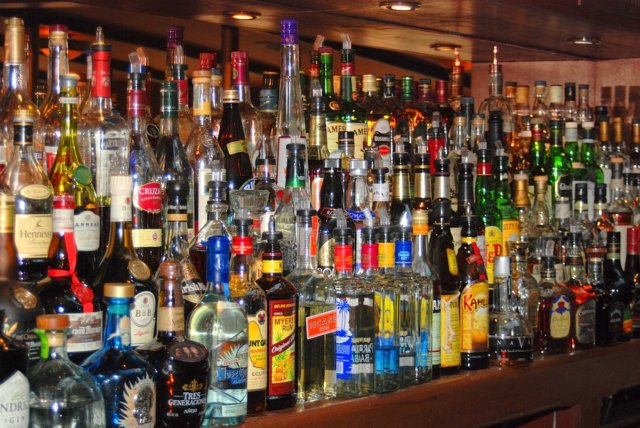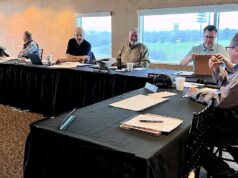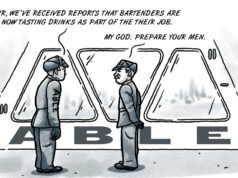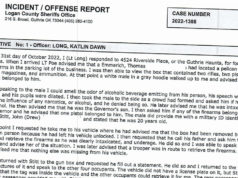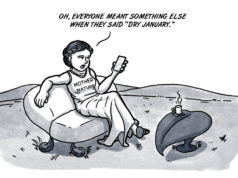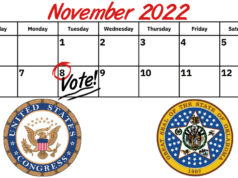After teachers filled the Oklahoma State Capitol this spring, they returned to classrooms having achieved a primary policy objective to move their state forward: legalization of bona fide roulette and craps table gaming.
Wait, what? That barely makes any sense.
All coyness aside, the bizarre circumstances that led to “ball and dice” gaming at tribal casinos stand as just one small story in a book that could be written about how 2018 became the year Oklahoma loosened its grip on several public vices.
Voters in June approved the state’s first medical marijuana program, with 57 percent of those casting ballots saying they wanted Oklahomans to have access to cannabis. After a rocky start, the Oklahoma Medical Marijuana Authority has been issuing licenses, and dispensaries are popping up around the state as grow operations are established as well. The success of CBD businesses also seems to have moved the needle on what Oklahomans believe can benefit their health.
When it comes to easier access for a literal poison, however, Oklahoma is tearing down proverbial walls as well. In 2016, voters approved a ballot question to modernize the state’s liquor laws, and come Oct. 1, the state will see cold wine and beer (of a single-strength category) in grocery stores and liquor stores. Oklahomans will also be able to buy some non-alcoholic items at said liquor stores. Similarly, beer breweries and tap rooms have been popping up like wildflowers.
Lastly, a 2018 U.S. Supreme Court ruling opened the door for sports betting in Oklahoma and the rest of the United States. The rules and regulations for “sportsbook” gambling are almost certain to be a hot topic for the 57th Oklahoma Legislature, which will be filled with political neophytes. If educators were so easily co-opted to preach the gospel of “ball and dice” table games this year, perhaps tribal interests will find eager sports-betting allies among freshmen lawmakers.
“Bet on the Sooners and fund classrooms? I’m for your deal!”
State failing to take action on vices
Across the board, one can easily argue the benefits of all these changes, particularly as commerce leaders continue to recruit businesses from California, Texas and other states. Modern Americans like modern laws, and Oklahoma’s rulebook on vices has leaped forward four decades in about 24 months.
But as with any social shift, it takes time to recognize ramifications. Medical marijuana industry leaders are already calling for legislation to limit the number of grow operations to be licensed each year, as Oklahoma’s licensure totals have surpassed a handful of western states combined. That, they say, means Oklahoma will likely become a national leader in black-market marijuana grown domestically, and we still have not found a solution to provide necessary product testing.
Meanwhile, alcohol-related deaths still rank third in the nation among preventable deaths, behind only tobacco-related and diet-related causes. According to a 2016 presentation by Oklahoma Department of Mental Health and Substance Abuse Services Commissioner Terri White, Oklahoma has the 11th highest rate of alcohol poisoning in the country. She notes that more than 250,000 people are alcohol dependent in Oklahoma and that only 7.6 percent of those needing treatment actually receive it. So although buying wine and craft beer will soon be far easier in Oklahoma, the state cannot say it has made any progress to address alcohol addiction.
Similarly, tribal gaming revenues may be setting new records on a nearly annual basis, but Oklahoma remains a top-10 state for gambling addiction. This century, stories of embezzlement across Oklahoma have routinely featured gambling debt and addiction as root causes.
Former Sen. Rick Brinkley (R-Owasso) was the only known candidate to replace then-Sen. Brian Bingman (R-Sapulpa) as president pro tempore of the Oklahoma State Senate in 2015. But Brinkley withdrew his candidacy shortly before pleading guilty to embezzling $1.8 million from the Tulsa Better Business Bureau, a crime largely fueled by a hidden gambling addiction.
And what is Oklahoma’s government doing about problem gambling? This ODMHSAS website features a 1-800-522-4700 help line and an awkward Google Map-based list of treatment programs last updated Nov. 30, 2016. But the stories of gambling addicts being convicted of embezzlement keep coming, even if they fly under the radar and fail to produce a political narrative prompting action.
So while Oklahomans should enjoy the benefits of new rules concerning common vices, the Legislature and other state leaders have a lot left to do in terms of helping those who have related problems.








